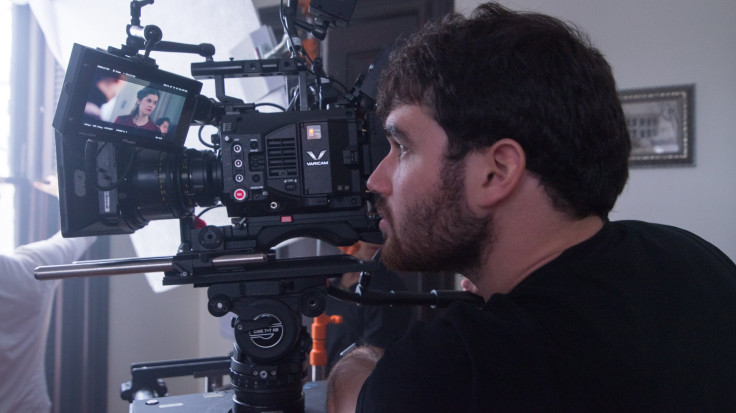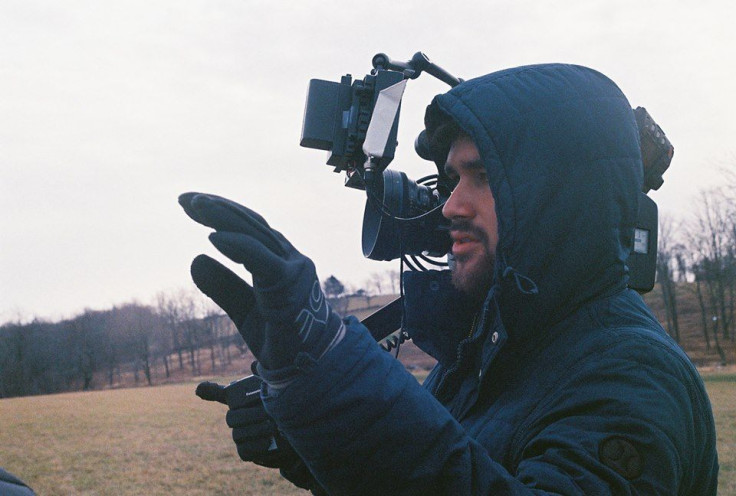
Every once in a while, you come across inspiring people and Diego Cordero is one of them. Hailing from the Dominican Republic, Cordero, a young man in his 20s, is following his dreams as a filmmaker with a lot of hard work, dedication, and of course, his innate talent to capture wonderful images on film and captivating the spectator. Fresh out of college, Cordero has created his own path to success, even being recognized by the American Society of Cinematographers, where he was nominated for the Student Heritage Awards thanks to his work on the short film “Silver.”
But this isn’t the only time Cordero has been acknowledged for his work. He won “Best Cinematography” at the Hollywood International Moving Pictures Festival for the short “Kun Fayakun,” and another one of his shorts “Polaroid Kingdom,” in which he was the cinematographer, was a favorite, taking prizes at the LA Shorts Award in November 2017, NYC Indie Film Award in November 2017, LAIFF Awards in October 2017, HIMPFF Awards in October 2017, Gold Movie in London in October 2017, and at the Oniros Film Awards in October 2017.

If that wasn’t enough, some of his more “mainstream” work include music videos. Cordero was the Camera Operator for Maluma’s “Sin Contrato,” directed by Jessy Terrero with cinematography by Daniel Pearl ASC. He was also the cinematographer for Mark The Beast’s music video “In Love With The Devil,” and participated in the T.V. Series “Big Dogs” as a colorist. These are just some of this talented man’s accomplishments in the industry, and to learn more about him, we sat down with Cordero to talk a little bit more about his journey, where it has taken him and his plans for the future.
In our conversation, we could appreciate that Cordero is wise beyond his years, with a maturity level that exceeds expectations, making him even more grounded and disciplined for such a challenging industry. His words were eloquent and to the point, and after speaking with him we saw all the qualities that have made him so successful in his short years.
LATIN TIMES: How did you get involved in filmmaking?
DIEGO CORDERO: After graduating high school in Dominican Republic, I took a sabbatical year to work on film sets and see what it was all about. During my first summer out of school, I approached a family friend who was getting ready to shoot a feature film. He took me under his wing and gave me a job as a production assistant. Later on during production, he made me responsible for capturing surveillance-type footage for the dystopian film. At the time, this was one of the highest-budget films produced in the Dominican Republic. It was an immense amount of work that I did not expect, but there was an equal amount of lessons to be learned, and I loved every minute of it.
LT: When did you realize this was what you wanted to do in life?
DC: I picked up photography when I was about fourteen years old. After learning the basics, I started experimenting with long exposures and night photography. I soon realized how some of my own pictures could influence my feelings. I started making images that would provoke an emotion, or at least I tried. At this point I did not appreciate films and art the way I do now. I was not aware people had been pouring emotion into images for centuries, or at least I didn’t pay attention until I did it myself. When I turned sixteen I started making action sports videos of my friends and I, weekends would fly by as I shot and edited these short, fun videos and I would not think of anything else. I realized I could do this for the rest of my life and not get bored. This still holds true.
LT: What has been the most challenging “bump in the road” you’ve encountered so far?
DC: Leaving my family and friends behind In the Dominican Republic and moving to the U.S. with a whole new set of responsibilities was quite a challenge. Most of all, I miss the people and places I grew up around.
LT: What has been the most gratifying experience throughout your career as a cinematographer?
DC: All the new friendships that come with working on set and seeing all the work you put in up on a big screen. We work for twelve plus hours day after day, most times in harsh conditions, people are sleep deprived and there are many problems to be solved. This sets the stage for either a lot of drama, or for strong bonds formed by amazing people working together for one common goal. Thankfully, it usually ends in good relationships. Something that is important in an industry that makes you spend so much time away from home, family, and old friends. After it’s all done you can share what you have created and hopefully be proud of what you’ve accomplished together. That is when it pays off.

LT: You’re very young, yet have accomplished so much. What do you think has been the key to your success?
DC: I’m blessed with a family that understands and supports my passion, which has allowed me to do what I love. Filmmaking requires lots of time, effort, and sacrifice. I am willing to put in the work and accept the sacrifices only because it is what I love. It’s heartbreaking to think about all other people who were forced into a career away from their passion. How many more great artists there could have been if not for the fear of chasing a dream.
LT: Where do you see yourself in 10 years from now?
DC: On a film set somewhere behind a camera (if we’re still using those in ten years). The truth is, things are changing so quickly now that the work I’ll be doing in ten years might not even exist. Be it in virtual reality, computer animation, traditional filmmaking, or something completely new, I’ll be there making images and telling stories that will touch the hearts of many.
LT: What advice would you give students who want a career in filmmaking?
DC: Remember there is always more to learn, most of which will not come from a classroom. Always be open to a lesson, and use your time to experiment with whatever you have available.
LT: What has been the greatest advice you’ve received?
DC: Be a sponge! As a cinematographer you need to take in everything from your background, surroundings, the story, everything your director and creative team talk about, and pour it all into your work. That is the only way to make original work.
LT: As a Latino, have you felt it’s been more challenging breaking through this industry, why or why not?
DC: Thankfully, I’ve been surrounded by people who have accepted me as I am, because of my work ethic. I don’t feel that I’ve been treated differently by the people I’ve worked with just because of where I come from. In the field of art, people are more open-minded. The real challenge for me as a Latino in the United States is the fear of not being able to work because of an immigration status.
LT: What’s your next step? What would your dream project be?
DC: Most of all I want to be a part of something that makes a difference in the world. I would like to use my craft to challenge the topics that plague our society and this planet, including all living things that are affected by our actions.
You can find out more about Diego on his WEBSITE.
© 2024 Latin Times. All rights reserved. Do not reproduce without permission.
